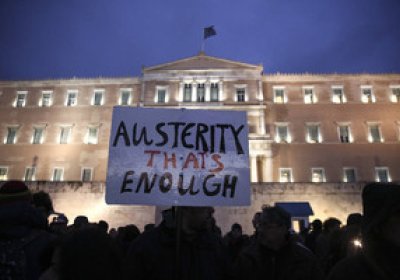A special commission of the two largest associations of Latin American nations, the Community of Latin American and Caribbean States (CELAC, which includes all of the Latin America and the Caribbean) and Union of South American Nations(UNASUR, which represents South American countries) met to discuss US attacks on Venezuelan democracy in a February 11 meeting.
Held in Montevideo, Uruguay, to analyse the relationship between the United States and Venezuela as well as the situation inside Venezuela, the joint commission was convened at the request of Venezuelan President Nicolas Maduro.
International solidarity
The Latin American Social Forum held a forum on February 7 in Sydney. About 80 people attended.
We were welcomed by the Ecuadorian indigenous folksinger Manuel with a ceremonial greeting in Quechua to Pachamama and soulful pipe playing. The evening began with a video conference with Pablo Fajardo, representing the 30,000 indigenous Ecuadorians fighting against the ecological disaster caused by Chevron-Texaco.
Eighty days on hunger strike has put an Iranian man who sought safety in Australia at death's door, as advocates around Australia fight for the immigration department to act to save his life.
“Martin” took the non-violent step to refuse to eat last November after the Australian government denied him refugee protection and redetained him in the remote Wickham Point Detention Centre. At least 15 other men in the same situation as Martin have also taken up a hunger strike.
As the excitement subsides on the Queensland election results, we need to take stock of what this means for the left in Australia. While the deep north of our country is a world away from Greece, there is a political trend here. But first let’s stay in Queensland.
It was just three years ago that the then Bligh Labor government was thrown out suffering a 15.6% swing, one of the largest against a sitting state government in Australian political history. The Newman government lost with an 8.8% swing against it.
Radical leftist party SYRIZA has swept to power in Greece promising to end austerity and threatening to spark an anti-austerity fightback across Europe. Green Left Weekly's European correspondent and Socialist Alliance member Dick Nichols, usually based in Barcelona, was in Athens for the historic win. He is speaking across the country about SYRIZA's challenge to austerity and elite rule.
What lessons can we learn from the recent victory of SYRIZA for building the anti austerity movement and a political alternative to neoliberalism here in Australia? Greens Senator Lee Rhiannon, in her recent article in New Matilda [see reprinted article on page 6], writes that the left in Australia should wake up and take notice of what is happening in Europe. I couldn’t agree more.
Around 60 people attended a public forum in Sydney on February 9 to commemorate the 33rd anniversary of the re-establishment of the Palestinian People's Party (PPP). The party was retitled from its original name of Palestinian Communist Party, which was founded 96 years ago.
Shamikh Badra outlined the history of the PPP, from its early days in 1920s Palestine, to its re-founding in 1982. He explained the role of the PPP after it joined the Palestinian Liberation Organisation (PLO) in 1987 and fought for militant policies within the Palestinian liberation movement.
A statement released by the Confederation of Revolutionary Trade Unions of Turkey (DISK) in Diyarbakir says the union has 12,000 members who have pledged their willingness to assist in the reconstruction of Kobanê following the offensive from ISIS which left much of the city in ruins.
In response the attempted blackmail by the European Central Bank (ECB) of Greece's new anti-austerity SYRIZA government in response to its bid to renegotiate its crippling debt and austerity programs, the Party of the European Left has called for mass demonstrations from February 11-17 in support of Greece. You can read about the latest developments in Greece's battle with the European elites here.
Venezuela rejects new US sanctions
The Venezuelan government rejected aggressive new US-imposed sanctions on February 3, TeleSUR English said that day, insisting the measures flout international law.
Venezuela's foreign ministry said in a statement: “The people of Venezuela ratifies its independence and sovereignty. We do not recognise … interference of any kind by foreign powers.”
It accused the US of “violating the principles of national sovereignty, equal rights and non-interference in the internal affairs inherent in international law”.
If anyone was still wondering whether European politics and a Europe-wide class struggle actually exist, reactions from all quarters to the first two weeks of Greece’s new SYRIZA-led government would have cleared up any doubts.
The conflict between Europe’s ruling elite and the new Greek anti-austerity administration, headed by radical left party SYRIZA, reached a high point on February 4-5.
The statement below was published on Transform-network.org on February 3.
It has been signed by seven out of nine presidents of Germany's trade unions, all members of the executive boards of DGB and IG Metall, and mainly Social Democratic Party politicians in Germany's parliament and the European Parliament, including two vice-chairs of SPD, as well as numerous academics.
* * *
- Previous page
- Page 142
- Next page









